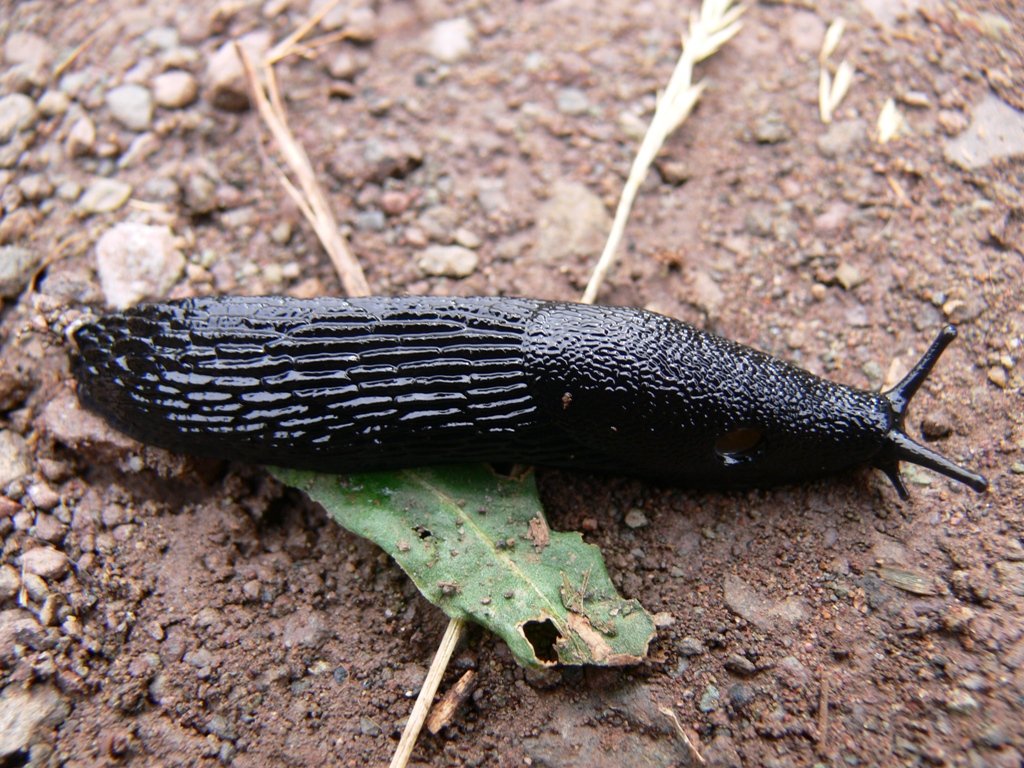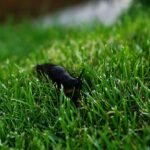The black slug, although it can cause concern by its presence, does not present any danger in terms of toxicity for humans or domestic animals. Unlike some other creatures, black slugs (sometimes called Arion in Europe) do not have venomous glands or mechanisms for inflicting bites or stings.
They feed mainly on plant and decomposed matter, which makes them players in natural recycling and the decomposition of organic matter.
Summary table of main information 🌱
| Information | Detail |
|---|---|
| 🧪 Venom or toxin? | The black slug is not venomous or toxic to humans or animals. |
| 🌍 Role in the ecosystem | Promotes the decomposition of organic matter and enriches the soil with nutrients. |
| 🌞 Release time | Active especially at night or in humid weather. |
| 🌱 Type of diet | Feeds on plants, fungi and decaying matter. |
| 🚫 Impact on the garden | May cause damage to young shoots and growing crops. |
Are black slugs harmful to your garden?
Although the black slug is not venomous, it can be problematic for gardeners because it readily attacks plants and crops. It feeds in particular on young shoots and tender leaves, which can slow down the growth of certain plantations and affect their development, especially in spring when conditions are favorable (humid weather and mild temperatures).
To avoid slug infestations without resorting to chemicals, several natural techniques exist:
- Use of physical barriers : Crushed eggshells, sand or crushed seashells create abrasive surfaces that are not appreciated by slugs.
- Installation of beer traps : The smell attracts slugs which fall into the trap.
- Protection of vulnerable plants : Installing nets or bells can protect young shoots from nocturnal attacks by slugs.
How to avoid black slug damage?
Dense, moist gardens, with shaded areas and a high presence of organic matter, are ideal for slugs. Well-drained soil and crop rotation practices are essential measures to reduce their presence. Ecological management also consists of encouraging the presence of natural predators, such as hedgehogs or ground beetles, insects which consume slugs.
ON THE SAME SUBJECT: Black slugs in the house: How to eliminate them naturally?
A useful creature for the ecosystem
Although it is often undesirable in a garden, the black slug has its role in ecological balance. Its contribution to the recycling of organic matter enriches the soil and promotes the development of useful micro-organisms. It is therefore, despite its annoying aspects, an indirect ally for soil fertility and the nutrient cycle.
Glossary 🧩
- Venomous 🐍: Refers to an animal or plant that produces venom.
- Toxic ⚠️: Substance dangerous to health.
- Decomposition 🌱: Process of degradation of organic materials.
- Nocturnal 🌙: Who is active at night.
- Humidity 💧: Presence of water in the air or ground, ideal for slugs.
- Crop rotations 🔄: Agricultural technique to limit parasites and improve the soil.
- Natural predators 🦔: Animals that hunt slugs naturally.
- Gastropod 🐌: Class of invertebrates that includes slugs and snails.
- Natural barrier 🪨: Obstacle that limits pest access.
- Ecosystem 🌍: All living organisms and their environment.
To find out more, a YouTube video offers a detailed approach to slug species and their impacts.


